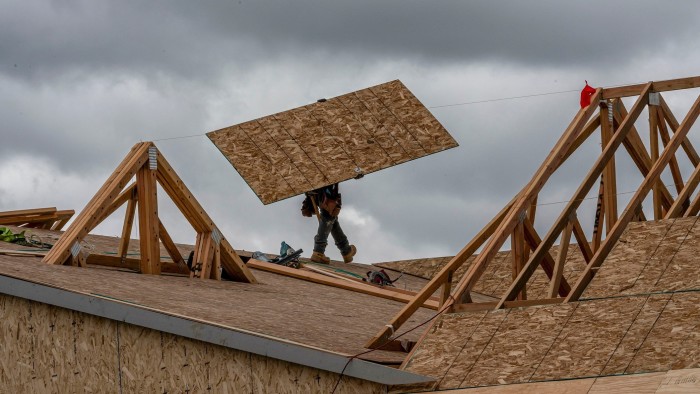Stay informed with free updates
Simply sign up to the EU trade myFT Digest — delivered directly to your inbox.
The EU has imposed anti-dumping duties on Chinese plywood imports, just a few days after Beijing tried to ease trade tensions between the two.
The provisional levies of up to 62.4 per cent follow a surge in imports of hardwood plywood over the past three years that had damaged domestic producers, the European Commission said.
The Greenwood Consortium of EU producers, which brought a complaint against Chinese competitors last year, said it welcomed the move but argued for “definitive duties to be even higher than these provisional levels” when the commission makes a final decision later this year.
Brussels has also taken the unusual step of monitoring imports of softwood plywood, which is not subject to duties, after allegations that Chinese exporters were disguising hardwood products in anticipation of the levies, which will be backdated to last December. The different categories of plywood depend on the type of timber used to make the engineered product.
“The alleged practice consisted of placing very thin outer layers of softwood veneer on top of the hardwood plywood face veneer. Such practice makes the product fall under customs codes which are not subject to registration, without altering its essential characteristics,” the Commission said.
“Consequently, to minimise the risk of circumvention, the Commission considered it appropriate to monitor such imports.” It warned it could begin an anti-circumvention investigation, which would hit such imports.
EU industry groups have long complained that Chinese exporters can dodge duties by slightly altering products or sending them via third countries, and that Brussels is too slow to react.
The commission said domestic plywood industry sales, production and profits all fell between 2021 and 2023. China accounted for almost a third of the EU plywood market in 2023, with €327mn in sales.
Chinese imports filled a gap left by a ban on Russian and Belarusian plywood after the full-scale invasion of Ukraine by Moscow in 2022. The Commission warned in March that importers of birch plywood from China should check that it was not wood originally from Russia or Belarus.
The EU has continued with a steady increase in trade defence cases against China since it imposed anti-subsidy duties of up to 45 per cent on electric vehicles in October 2023. Last month it opened an investigation into car and truck tyres and restricted access for Chinese companies to its medical device market.
“I think the message to China is that they should not take for granted the openness of the European market,” said the EU’s lead trade official for China, Maria Martin-Prat, at a conference on Friday.
“And I think China has realised how we have developed a whole range of autonomous [defensive] measures, what we refer to as our tool box, and how we are ready to use those tools.”
The EU has also pressed China to lift export controls on rare earth magnets for civilian use, which has led to warnings from the car industry that production lines could stop.
Beijing on Saturday announced a fast-track licensing system for EU companies, after a meeting between European trade commissioner Maroš Šefčovič and Chinese commerce minister Wang Wentao last week.
But Brussels said products for civilian use must be exempt. The Chinese commerce ministry also said it was hoping for a negotiated solution on electric vehicle tariffs, and hinted it could drop antidumping tariffs on EU bourbon imports imposed last year in return for minimum price guarantees from EU producers.







